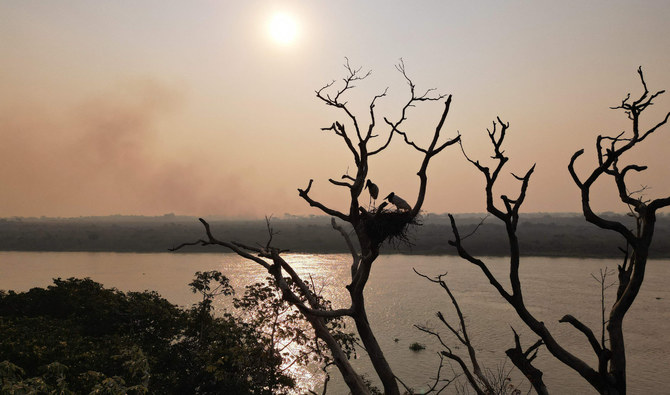RIO DE JANEIRO: The Brazilian Amazon recorded 13,489 wildfires in the first half of the year, the worst figure in 20 years, satellite data revealed Monday.
The total was up 61 percent compared to the 8,344 fires detected in the same period last year — an increase that experts say is the result of a historic drought that struck the world’s largest tropical rainforest last year.
Since Brazil’s National Institute for Space Research began compiling records in 1998, only two other years experienced more wildfires from January through June: 2003 (17,143) and 2004 (17,340).
The data makes for difficult news for the government of President Luiz Inacio Lula da Silva, with the number of fires increasing even as deforestation in the Amazon is on the wane.
Wildfires also set January-June records in two other biodiverse ecosystems south of the Amazon: the Pantanal, one of the world’s largest tropical wetlands, and the Cerrado savanna, which lies mainly in Brazil.
In the Pantanal, home to millions of caimans, parrots, giant otters and the world’s highest density of jaguars, 3,538 wildfires were recorded in the first six months of 2024 — an increase of more than 2,000 percent as compared with last year.
The Cerrado experienced almost as many fires as the Amazon from January to June — 13,229.






















